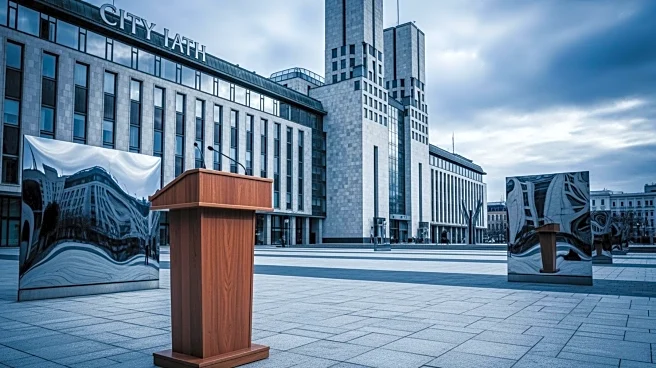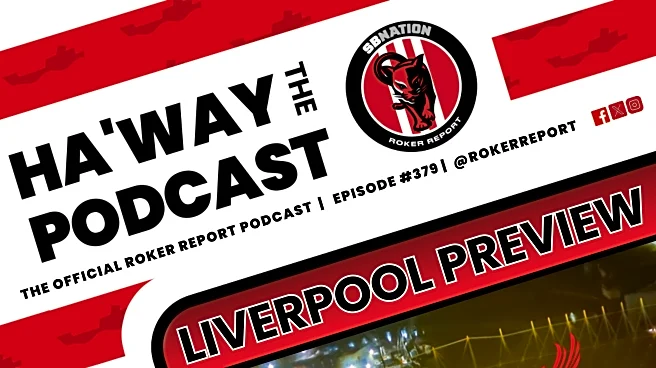What's Happening?
Boston Mayor Michelle Wu has expressed her disinterest in forming a friendly relationship with President Trump, following New York City Mayor-elect Zohran Mamdani's recent visit to the White House. Wu,
a progressive Democrat, has been a vocal critic of the Trump administration, particularly regarding its immigration policies. During Mamdani's visit, he and President Trump maintained a cordial tone despite Mamdani's previous criticisms of Trump. Wu stated that she would only consider meeting with Trump if the federal government agreed to stop certain controversial practices, such as prosecuting political enemies and cutting funding for life-saving research. Wu emphasized the importance of standing firm on values and continuing to progress for Boston residents.
Why It's Important?
Wu's stance highlights the ongoing tension between local leaders and the federal government under President Trump's administration. Her refusal to engage in a 'bromance' with Trump underscores the divide between progressive city leaders and the federal policies they oppose. This situation reflects broader political dynamics where local governments may resist federal directives that they perceive as harmful to their communities. Wu's position may influence other city leaders who are navigating their relationships with the federal government, potentially leading to increased advocacy for local autonomy and policy changes.
What's Next?
Wu's comments suggest that she will continue to advocate for Boston's interests independently of the federal government, unless certain conditions are met. This could lead to further political discourse and negotiations between city leaders and the Trump administration. Other city leaders may also follow Wu's example, demanding specific concessions from the federal government before engaging in cooperative discussions. The situation may evolve as local leaders assess their strategies in dealing with federal policies that impact their communities.










